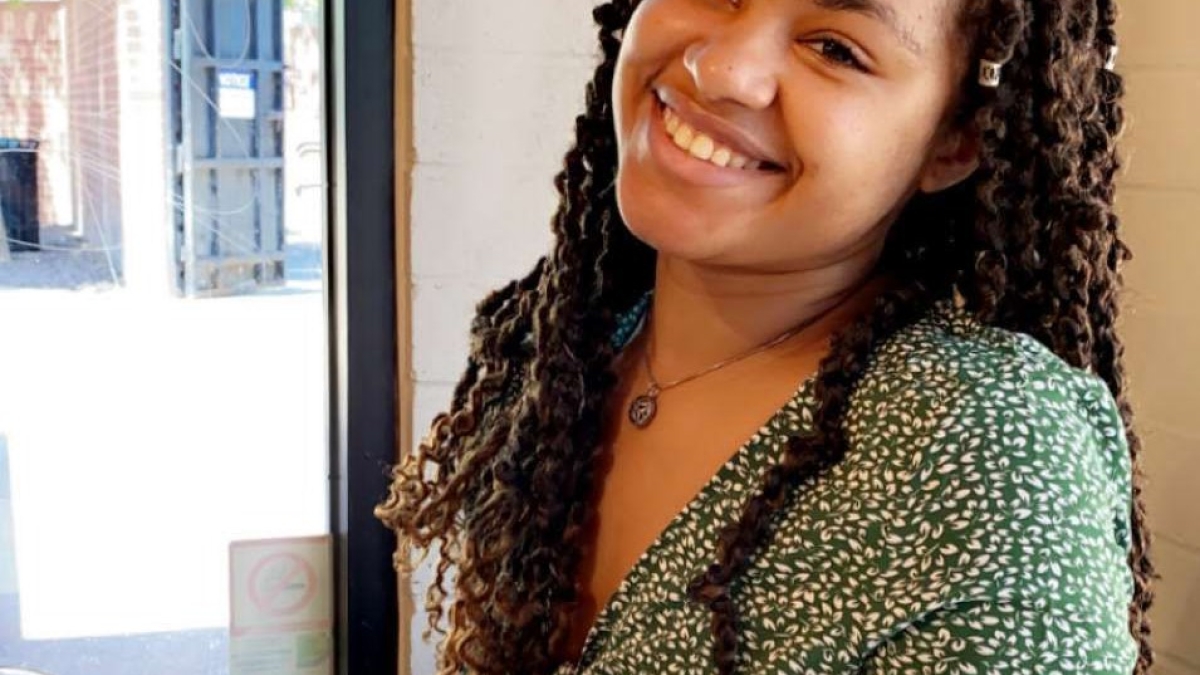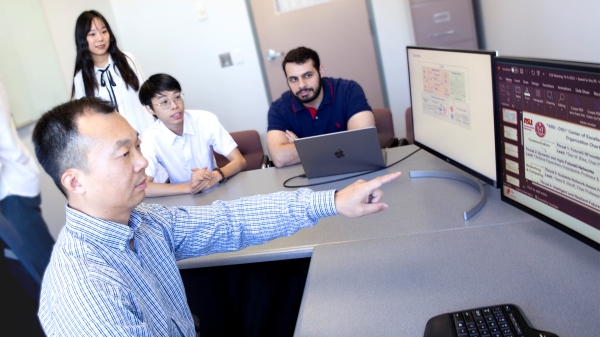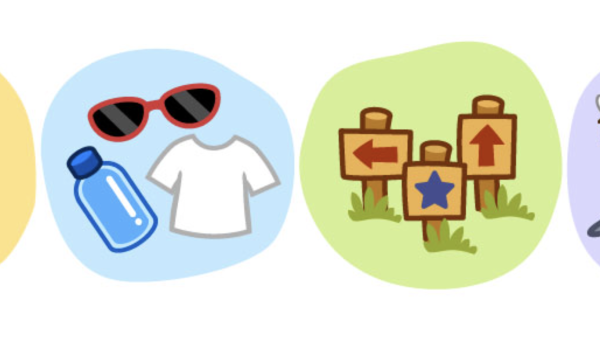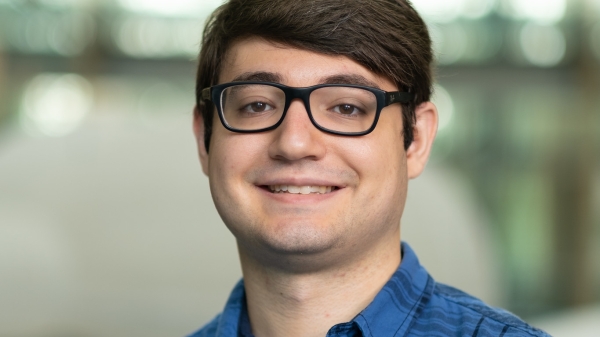Astrobiology, biogeosciences expertise prepares ASU graduate for career in planetary science

While at ASU, Amber Simon got the opportunity to work with the Psyche mission and the Lunar Reconnaissance Orbiter Camera team and was a ASU/NASA Space Grant recipient.
Editor’s note: This story is part of a series of profiles of notable spring 2023 graduates.
As a transfer student to the School of Earth and Space Exploration at Arizona State University, Amber Simon had to adjust to a new environment and find her place in the academic community. However, with the help of her professors and peers, she was able to come out of her shell and become an accomplished researcher and scientist.
This spring, Simon will graduate from ASU with a Bachelor of Science in astrobiology and biogeosciences.
One of the most significant experiences that helped Simon to grow and develop as a student was her involvement in two NASA missions, Psyche and the Lunar Reconnaissance Orbiter Camera (LROC). She gained hands-on experience working with cutting-edge technology and collaborating with experts in the field.
Simon's contributions to the Psyche mission were particularly noteworthy, as she played a vital role with the communication and outreach team for the mission. Simon collaborated closely with Cassie Bowman, an associate research professor at the School of Earth and Space Exploration and co-investigator on the Psyche mission.
“We were so fortunate to have Amber join the Psyche team during her first semester as a transfer student at ASU,” said Bowman. “Through her creativity, enthusiasm and excellent communication skills, she led and contributed to a wide range of projects focused on providing opportunities for the public to get involved in the mission.”
Simon investigated the feasibility of observing opportunities, created new website content and public materials to explain the science and engineering of the mission to the asteroid Psyche, and helped implement a decision matrix for identifying high-impact outreach efforts as a ASU/NASA Space Grant intern, among other projects. Bowman also complimented Simon's passion and penchant for working on a team.
Simon said she she looks forward to pursuing a career in the field of planetary science.
Question: What was your “aha” moment when you realized you wanted to study the field you majored in?
Answer: As a transfer student, I was at my old school in the library thinking about astrobiology. I really wanted to change my major, so I did some research and found what ASU had to offer, and I thought to myself. "I could really do this" — so I did.
Q: What’s something you learned while at ASU — in the classroom or otherwise — that surprised you or changed your perspective?
A: ASU taught me how to come out of my shell. I was a very reserved introvert, but the people I met at ASU encouraged me to be a better version of myself. I have more confidence in myself because of it.
Q: Why did you choose ASU?
A: I chose ASU because of all the opportunities they have for my field of study. I was able to do a NASA/ASU Space Grant, work with the Psyche mission and work with LROC.
Q: Which professor taught you the most important lesson while at ASU?
A: This person isn’t a professor but the person in charge of the Psyche student collaboration team (Cassie Bowman). ... She taught me that I can never achieve what I want if I don’t get out of my comfort zone.
Q: What’s the best piece of advice you would give to students?
A: Opportunities for you are everywhere. You just have to look for them and never stop trying to achieve what you want, no matter how many times you get rejected.
Q: What was your favorite spot on campus, whether for studying, meeting friends or just thinking about life?
A: My favorite spot has to be in the MU. There’s this lounge section right next to the sushi place with the most comfortable chairs.
Q: What are your plans after graduation?
A: For now I’m taking a break from school and going to work at an environmental lab in Phoenix. Then I’ll be applying to grad schools to get a PhD in planetary science.
Q: If someone gave you $40 million to solve one problem on our planet, what would you tackle?
A: I would probably try to tackle climate change. The environment is something that is super important to me, and I’d like to see it handled with care and generosity.
Q: Any influences from past teachers, friends or family?
A: My high school physics teacher really encouraged me to pursue what I wanted to pursue. He’d give me astronomy articles every now and then, and that really helped validate the field I wanted to go into. My mom was my biggest supporter, of course, and her believing in me really kept me going.
More Science and technology

Securing the wireless spectrum
The number of devices using wireless communications networks for telephone calls, texting, data and more has grown from 336…

New interactive game educates children on heat safety
Ask A Biologist, a long-running K–12 educational outreach effort by the School of Life Sciences at Arizona State University, has…

Materials science expert joins ASU to solve problems using curiosity, interdisciplinary collaboration
Jason Khoury, assistant professor in the School of Molecular Sciences and the Navrotsky-Eyring Center for Materials of the…